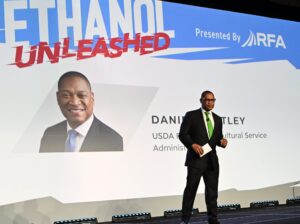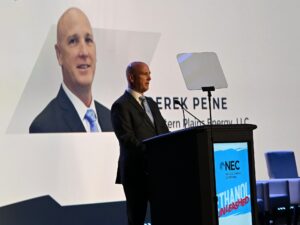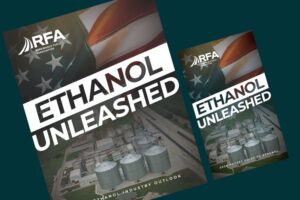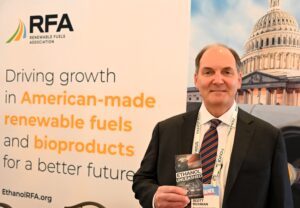The House Agriculture Committee passed a bipartisan Farm Bill in the dark of the night this week but failed to include an amendment with E15 language in it. Meanwhile, a member of the Senate Agriculture Committee said this week that they hope it will be added in their version.
Renewable Fuels Association Senior VP, Government & Public Affairs, Troy Bredenkamp says the ethanol industry will continue to fight until Congress does something to allow E15 to be sold in the summer months without resorting to waivers every year. “Until we get E15 over the finish line we won’t stop,” said Bredenkamp at the National Ethanol Conference last week. “That really is priority number one and so that that will be our focus and and we will have to continue to to push forward and and look at different avenues, look at different vehicles, try different angles and until we find something that is going to get us to the finish line.”Bredenkamp moderated a policy panel at NEC that spent a lot of time discussing the E15 situation. Doug Kantor, representing the convenience store retailers, Will Hupman with the American Petroleum Institute, Jordan Dux of the Nebraska Farm Bureau Federation, and Anne Steckel, Senior Advisor for the National Farmers Union, shared the frustrations of having 95% of the liquid fuel value chain in agreement about E15 and still being unable to get Congress to act.
Listen to their conversation and an interview with Bredenkamp from the NEC:
NEC26 Policy panel (55:35) NEC26 interview - Troy Bredenkamp, RFA Government & Public Affairs (7:14)
















